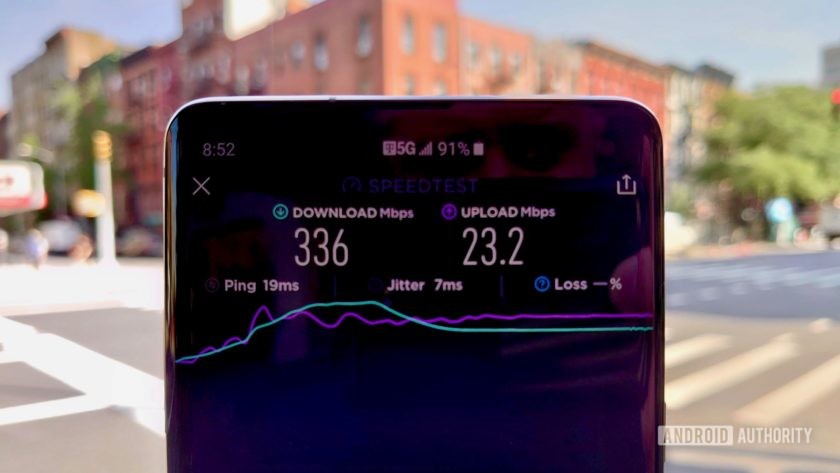
- Opensignal has determined that T-Mobile offers the fastest average 5G download speeds in the US.
- However, AT&T and Verizon fared better in 5G games, video, and voice tests.
- The technology still doesn’t live up to the hype for many users.
There’s no doubt that 5G has come a long way in the US, but how is it faring as summer gets started in earnest? Opensignal might have an idea. The network research firm has determined not just who has the fastest real-world 5G in the country, but who performs the best in given categories — and no, it’s not always the same carriers.
T-Mobile had the fastest average 5G download speed in the country, widening its lead with a typical 87.5Mbps versus the 52.3Mbps for both AT&T and Verizon (disclaimer: this author also writes for Verizon-owned Engadget). If the best 5G for you means the quickest app installs and file transfers, look no further.
Read more: The hottest 5G phones you can buy
The magenta carrier also nudged ahead of rivals for best 5G upload speeds, offering an average of 15.1Mbps versus 14.2Mbps for Verizon and 8.8Mbps for AT&T. It was also the provider of choice if you wanted to connect in the first place. T-Mobile users could reach 5G 36.3% of the time, while AT&T users only connected using the newer technology 22.5% of the time. Verizon users even saw their availability drop from 11.2% to just 10.5%.
Basic connection quality wasn’t the only metric for success, however. Verizon offered the best 5G games and voice app experiences in Opensignal’s testing, while there was a virtual tie between AT&T and Verizon for the ideal video experience. You might be better off with one of those two providers if low-lag gaming or seamless video streaming are top priorities — and you have strong 5G coverage, of course.
Just don’t count on finding extra-fast millimeter wave service, regardless of your phone company. Verizon customers only spent about 0.7% of mean time connected to mmWave 5G, Opensignal said, and service was even rarer for AT&T (0.4%) and T-Mobile (0.2%) users.
There’s a common theme for all carriers, though — even if you have great service, 5G still has a long way to go before it lives up to its potential. Those average 5G speeds aren’t as fast as a very good LTE connection can offer, and mmWave is both too rare and prone to interference. Service will get better, but we wouldn’t rush to get a new device solely for 5G.